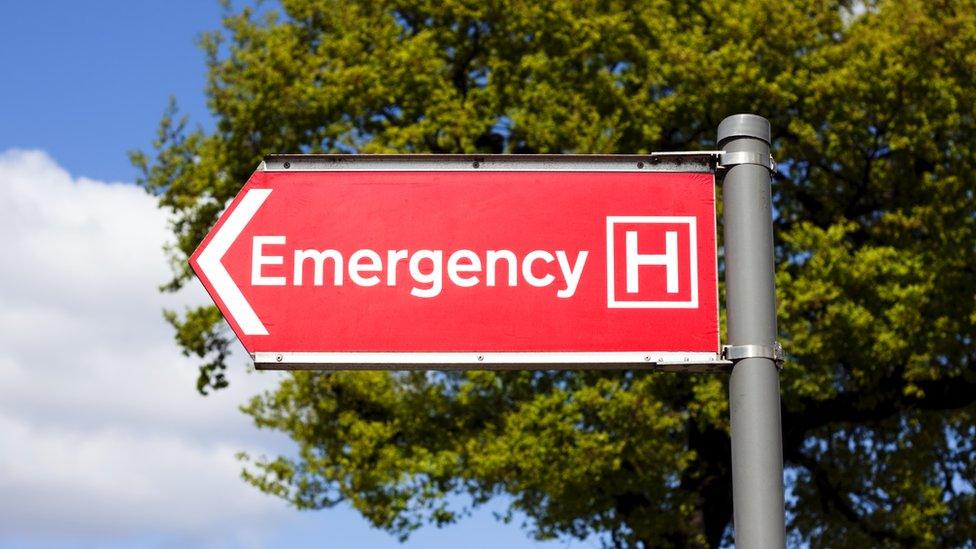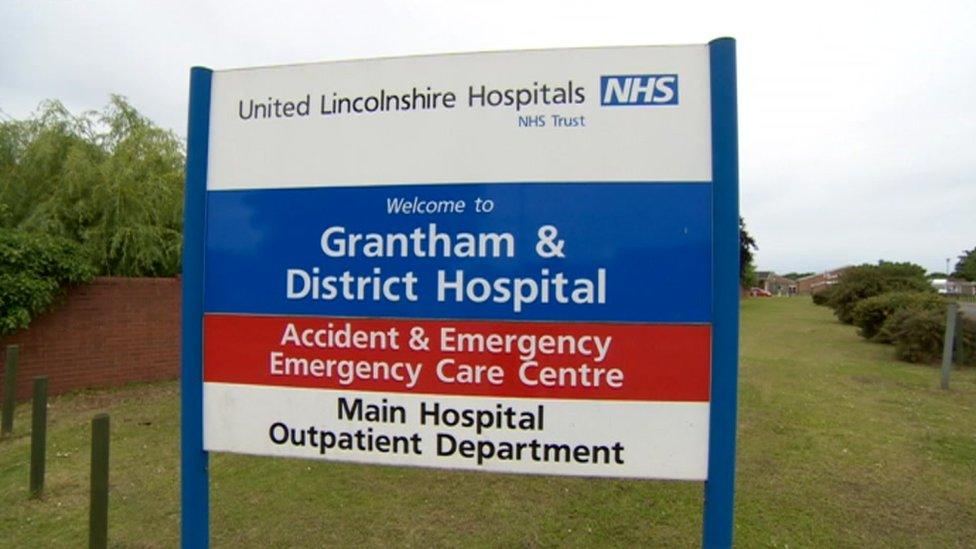Difficult headlines – more troubled times ahead for the NHS?
- Published

Restrictions on operations, an overnight closure of A&E, more missed targets and record numbers of patients unable to get discharged - it's been a week of difficult headlines for the NHS in England.
It has to be said that the moves by a Lancashire commissioning group to cancel routine surgery for four months and a Lincolnshire hospital trust to close a local A&E unit overnight were still subject to consultation. The Lancashire decision has since been reversed.
But it's hard to escape the impression that they are not the only health organisations facing financial and staffing stresses.
The national performance figures from NHS England for June paint a depressing picture. For the thirteenth month in a row the ambulance response time standard for urgent calls was missed.
So too the key waiting time target for consultant-led treatment.
There was a slight improvement in the proportion of A&E patients seen or assessed within four hours but it was still well short of the 95% benchmark.
The target for cancer patients to begin treatment within two months after urgent referral by a GP was also missed.
Emma Greenwood of Cancer Research UK said the figures "represent two and a half years of failure" and the fact that more than half of all trusts in England missed the target was "unacceptable".
The pressure on hospitals was illustrated again with the rise of more than 2% year on year in numbers going through the doors of A&E units.

United Lincolnshire Hospitals NHS Trust said it is considering slashing opening hours at Grantham and District Hospital due to a severe shortage of doctors
Emergency admissions registered an even bigger increase, 4.7% up in June 2016 from June the previous year.
Patient numbers are rising faster than the supply of doctors and other medical staff which was a key reason for the decision to cut emergency department opening hours in Lincolnshire.
Perhaps the most eye-catching statistic was the so-called delayed transfers of care (covering patients held up in hospital beds because continuing care is not available). There was an astonishing 23% increase in bed days lost because of delayed transfers and the number of patients held up in hospital in the final week of June was the highest since records began in 2010.
Delays moving elderly patients out of hospital because of problems arranging residential or home care have created big problems for the health service.
Dr Mark Holland, president of the Society for Acute Medicine, said that in the summer months there should be plenty of empty beds so the latest figures were deeply worrying.
"A 23% increase in delayed discharges is wrong and reflects a system which is close to breaking down.
"Proper provision of social care is lacking and the inadequacy must now be viewed as a national emergency."
An NHS England spokesperson said: "It's important patients who are well enough to leave hospital can do so at the earliest opportunity, and in some parts of the country the system is working well.
"These figures underline the importance of joined-up care within the NHS and the dependence of hospitals on well-functioning social care services - particularly for older people living at home."
Joined-up care and keeping people, especially the elderly, out of hospital are seen now as top priorities at NHS England.
That's why health and local authority managers have been urged to draw up what have been dubbed Sustainability and Transformation Plans.
The idea is that community leaders work out the best way to deal with rising patient demand without putting more pressure on hospitals.

For Simon Stevens, head of NHS England, a lot is riding on these transformation plans.
He will personally vet each of them and their publication in the autumn will be billed as the NHS's response to the immense financial and care challenges.
Sceptics have concluded that the transformation plans will be a smokescreen for cost savings.
Nigel Edwards, chief executive of Nuffield Trust, predicted "eye-wateringly extensive cuts" and that tens of millions of pounds had to be saved which would result in "widespread hospital closures".
An NHS source denied that the aim of the plans was to find savings.
With demand for care rising and a finite pool of resources there will be some tricky decisions to be made in each community about what patients can be offered in future.
Expect some more weeks of difficult headlines for the NHS.